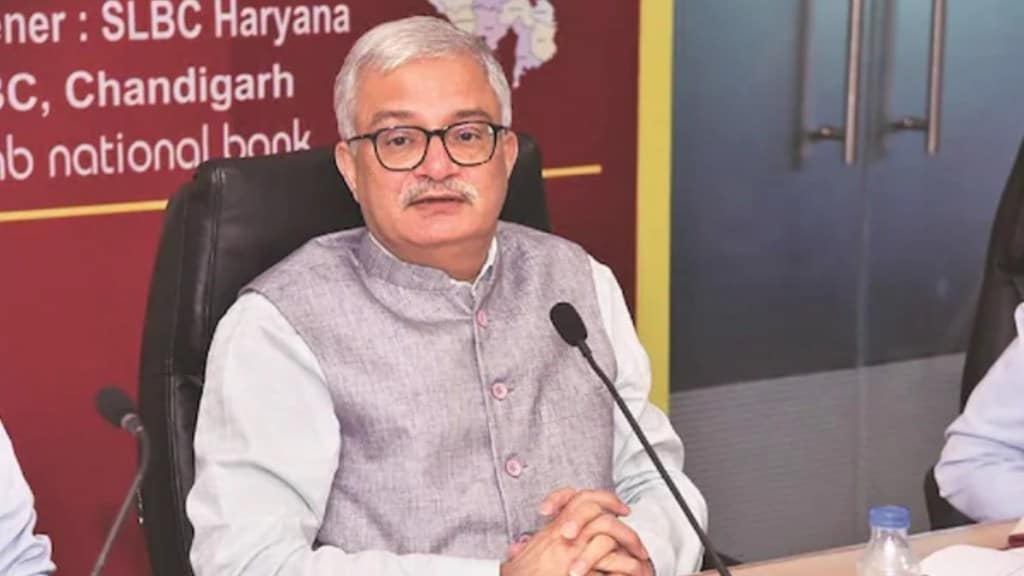Public sector banks (PSBs) will develop their in-house capability to assess MSMEs’ creditworthiness by factoring in their digital footprint like salary and electricity bills and employees provident fund (EPF) deposits, rather than insist on balance sheets for extending loans, Financial Services Secretary Vivek Joshi said. The 2021 budget proposal to privatise two PSBs is still under consideration, Joshi told Prasanta Sahu. Edited Excerpts.
Isn’t widening the credit-deposit gap in the banking sector a matter of concern?
Low-cost Current Account Savings Account (CASA) deposits have a share of 41% in bank deposits. Earlier, it was 44-45%. There is a downward trend. But, it was 36% in FY16. So, CASA is above 40%, which is good. It’s not a matter of too much concern, but the gap is a bit on the higher side. We have to see in which direction rates move. There could be some reduction in credit demand also.
Banks have to improve their CASA and cheap deposits, especially PSBS. We have asked PSBS to conduct a study on how to improve their customer services and the friction points that need to be resolved for better customer experience like in private banks.
What about the plan to privatise PSBs? Will more PSBs be merged?
Privatisation of the two banks was announced in 2021. For that, we have to change the (bank nationalisation) law. This is under consideration by the government. We have not said anything about further mergers of PSBs. There was speculation in the media about the merger of five banks including Uco Bank, Bank of Maharashtra and Indian Overseas Bank. There is no truth in it.
What is the progress on putting in place a Common KYC?
KYC process has to be risk-based instead of one-size-fits-all. The expert committee on C-KYC has given its report in April 2023. We are working on that. We have to make some legislative changes, We are upgrading the system of the Central Registry of Securitisation Asset Reconstruction and Security Interest (CERSA) to make it more efficient and connect it to each bank branch. All regulators have to come to one platform so that C-KYC, if given to one entity, will also work for the other entities.
Could you elaborate on the budget proposal for developing a new credit assessment model for MSMEs?
Currently, loan appraisal is based on MSMEs’ balance sheets, accounts, and income tax records. Now, banks will also look into their digital footprint. These include salary and electricity bills, municipal taxes and EPFO deposits to establish their creditworthiness. Discussion on this will be held with banks and then the Indian Banks Association will give a common template of the model to banks. Banks will not insist on balance sheets or income tax proofs.
Will the government infuse more capital in general insurance companies?
We have given Rs 17,450 crore between FY20 and FY22 to Oriental Insurance Company (OIC), National Insurance Company (NIC) and United India Insurance Company (UIIC). Their performance has improved. OIC made a profit of Rs 18 crore in FY24 while NIC’s loss has considerably narrowed down to Rs 187 crore and UIIC loss to Rs 800 crore. We will observe them for one more year. They incur heavy losses in motor and health portfolios. There is no limit to claims in motor insurance, which needs to be looked into.
What is the status of the Five-day work week proposal for banks?
The Indian Banks’ Association has recommended it and the government is looking into it. The government has also to look into other factors, such as customers who might have free time only on weekends before making a decision.
Will some banks get additional time to meet the minimum public shareholding norm of 25%?
Three PSBs became MPS compliant last year: Bank of India, Indian Bank and Union Bank. We have requested an extension for meeting MPS norms for five banks where the government holding is high: Bank of Maharashtra (86%), Central Bank of India (93%), Indian Overseas Bank (96%), Punjab & Sind Bank (98%) and Uco Bank (95%). GIC Re and LIC would also require some more time to MPS norms.

